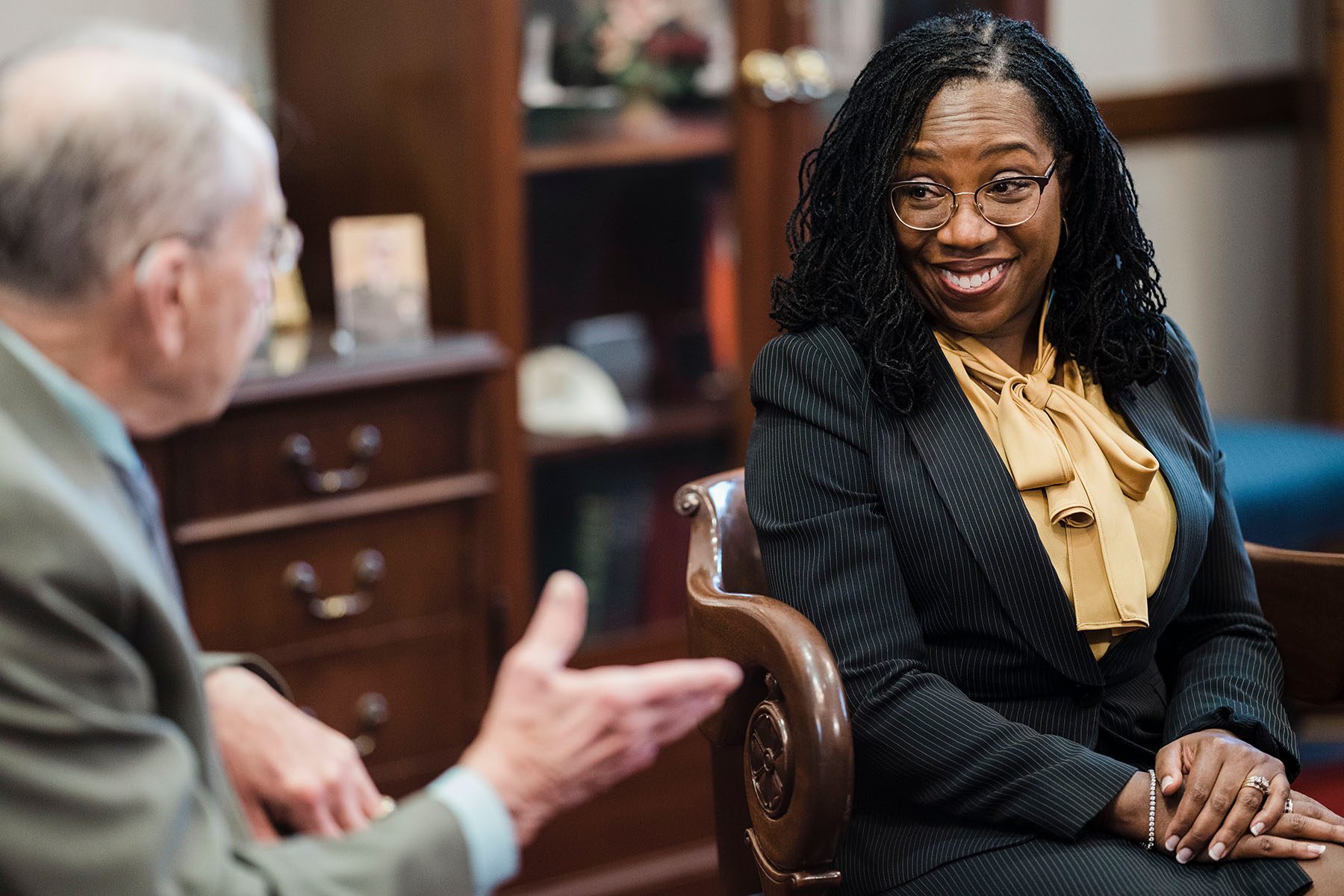In the days and weeks leading up to the announcement that Judge Ketanji Brown Jackson would be the first Black woman nominated to the U.S. Supreme Court, the White House and groups supporting her nomination prepared for potential lines of attack.
The possibilities were fairly predictable, with many of them rooted in tropes pushed on Black women for decades: Is she even qualified for this position? Are her views too radical? Is she too angry? Does her race make her biased?
“Vicious, racist, sexist tropes have long been levied against Black women,” said Karen Finney, a Democratic strategist and member of the Black Women’s Leadership Collective, which has worked in tandem with the White House on messaging efforts around Jackson’s nomination. “These are outlandish tropes, but they’re designed to undermine Black women based on stereotypes, based on trying to play to people’s worst instincts and fears.”
Fueled by that history, Jackson’s supporters quickly emerged to fend off questions about her credentials. The White House sought support from a range of interested parties, including Black-led organizations, legal academics and law enforcement. The Biden administration has also promoted endorsements from high-profile conservatives.
From her first event as a nominee at the White House on February 25, Jackson’s introduction to the public cast her as a choice who is both exceptionally qualified and relatable to a range of experiences. She’s the daughter of teachers who were educated at historically Black colleges. She was a star debater at her Miami high school and went on to graduate from Harvard University twice. She has worked in private practice and as a federal public defender. She has familial ties to law enforcement.
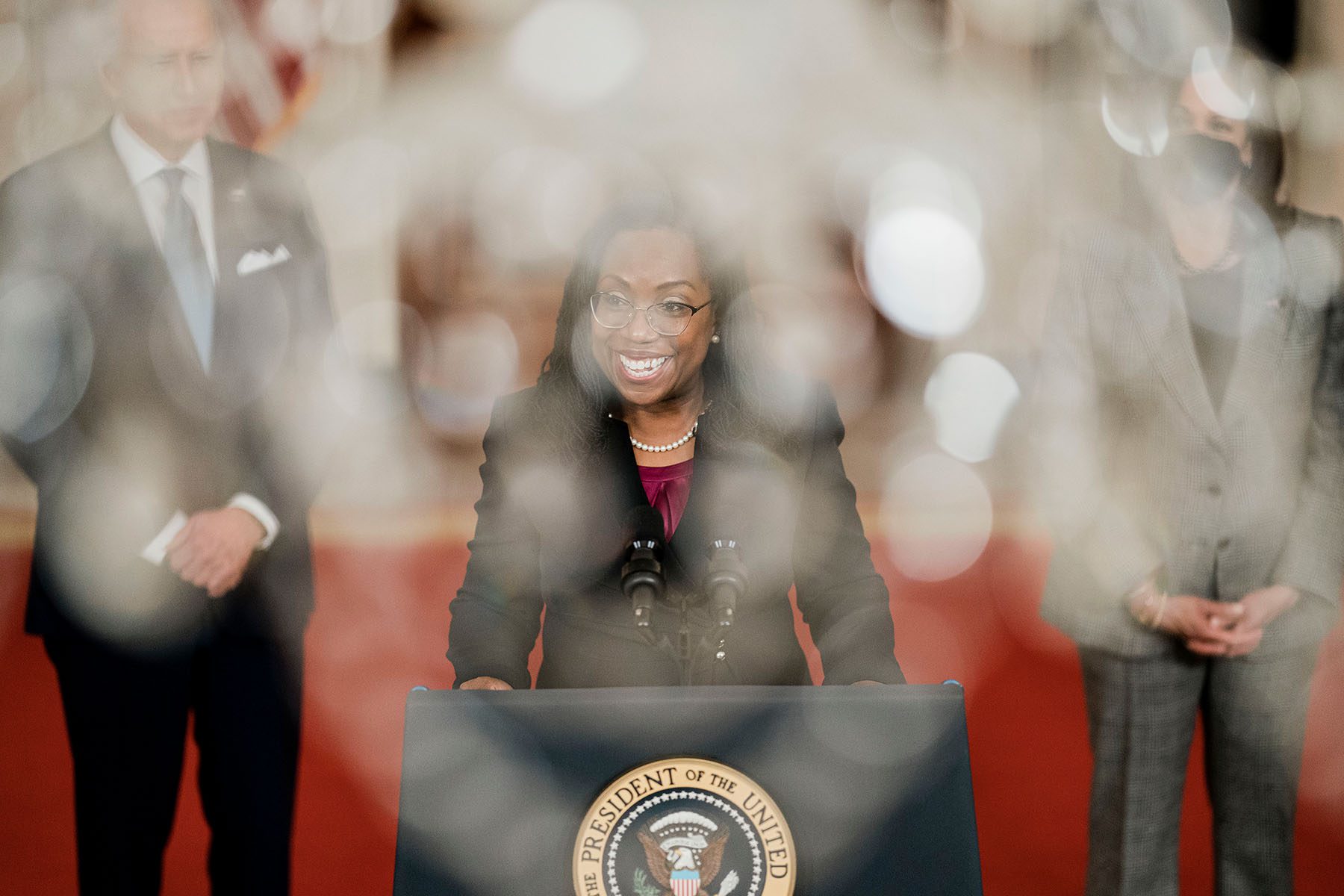
With Jackson’s confirmation hearings set to begin on March 21, the criticism against her has largely leaned away from questions about the merit of her nomination, focusing instead on what kind of justice she might be.
“I don’t know that it was necessarily strategic as much as it was truth telling,” Rev. Leah Daughtry, a member of the Black Women’s Leadership Collective and a former CEO of the Democratic National Convention, said of the messaging campaigns about Jackson. “This is her background. They didn’t have to embellish it, make it up, or go find some hidden facts. If that has the added effect of blunting criticism, so be it.”
The Black Women’s Leadership Collective was formed in the summer of 2020 to rally support for then-candidate Joe Biden and running mate Kamala Harris, who faced racist and sexist commentary when her presence on the ticket was announced. When Biden promised in a 2020 presidential debate that he would nominate a Black woman to become a justice, Daughtry said she knew it would be important for networks like hers to be a “firewall” for the future nominee and her family as they deal with the stressful and politically charged nomination process.
-
More from The 19th on Ketanji Brown Jackson
- History made: Judge Ketanji Brown Jackson to be first Black woman nominated to the Supreme Court
- Four Black women became classmates, roommates and lifelong sisters. One of them is now a historic nominee for the Supreme Court.
- How Ketanji Brown Jackson’s pursuit of success as a lawyer and parent got her a Supreme Court nomination
The collective partnered with the pro-Biden nonprofit Building Back Together and the #SheWillRise campaign to launch a $1 million digital, television and radio ad campaign. “Graduating with honors from Harvard Law, Judge Ketanji Brown Jackson has seen all sides of the justice system up close, as a federal judge, public defender and on the U.S. Sentencing Commission. Confirmed three times by the U.S. Senate, she’s qualified and exceptional,” one ad stated.
The Black Women’s Leadership Collective and other Black organizations have also held in-person and online meetings to educate the public about Jackson’s story and to put pressure on senators to confirm her. At a rally outside the Supreme Court on March 10, members of Black Women’s Roundtable, the National Council of Negro Women, the League of United Latin American Citizens and the National Council of Jewish Women gathered.
Speaker after speaker repeated that Jackson was not only qualified, but “overqualified” for the Supreme Court seat. But, like many Black women, she has faced doubts about her abilities at various points in her life, including a guidance counselor who reportedly told her not to set her sights too high when she expressed interest in attending Harvard.
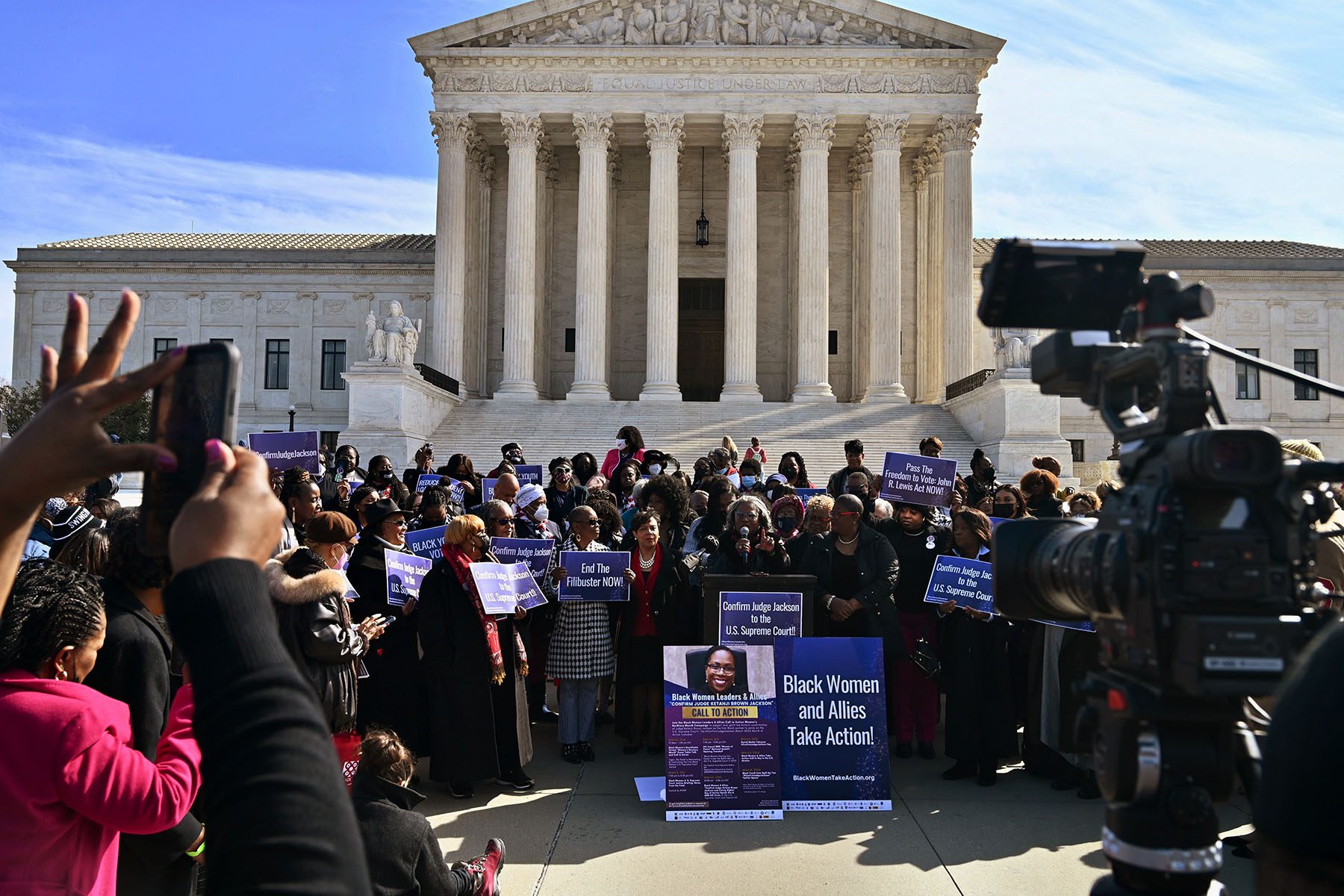
Delisa Saunders, a 65-year-old Washington, D.C., resident who attended the rally, told The 19th that aspects of Jackson’s story reflect her own experiences attending a White school in segregated Richmond, Virginia.
“When I read above my grade level, the librarian banned me from the library,” Saunders said. “I had all kinds of experiences with people doubting me as a child, but instead of that defeating me, it just invigorated me even more.”
While Black women have been vocal supporters of Jackson’s nomination, with the added awareness of how her qualifications were likely to be downplayed, support has come from a range of legal experts and groups invested in the judicial process. One letter signed by 850 women law professors and submitted to Senate leaders on International Women’s Day pointed out that Jackson was confirmed with votes from three Republican senators just last summer. Additionally, they said, having four women on the country’s highest court would bring important representation.
“The mere visual of four women participating in deciding this country’s most important issues would be inspirational to young Americans,” the professors wrote in their letter. “The perspective and life experiences of these four women would inform their decision-making and help the entire Court understand the perspective of the majority of American citizens.”
Jackson also got quick endorsements from leading conservatives and groups that often align with them. The day her name was announced, she received a statement of support from the Fraternal Order of Police, which reports nearly 400,000 members. “From our analysis of Judge Jackson’s record and some of her cases, we believe she has considered the facts and applied the law consistently and fairly on a range of issues,” the FOP’s statement read. “There is little doubt that she has the temperament, intellect, legal experience, and family background to have earned this appointment.”
In a subsequent statement, the FOP said that about a week before Biden’s announcement, the organization was contacted by White House staff members who asked for a reaction to three of the potential nominees, including Jackson, federal district judge J. Michelle Childs and California Supreme Court justice Leondra Kruger. The group said they found Jackson to have the most moderate court rulings.
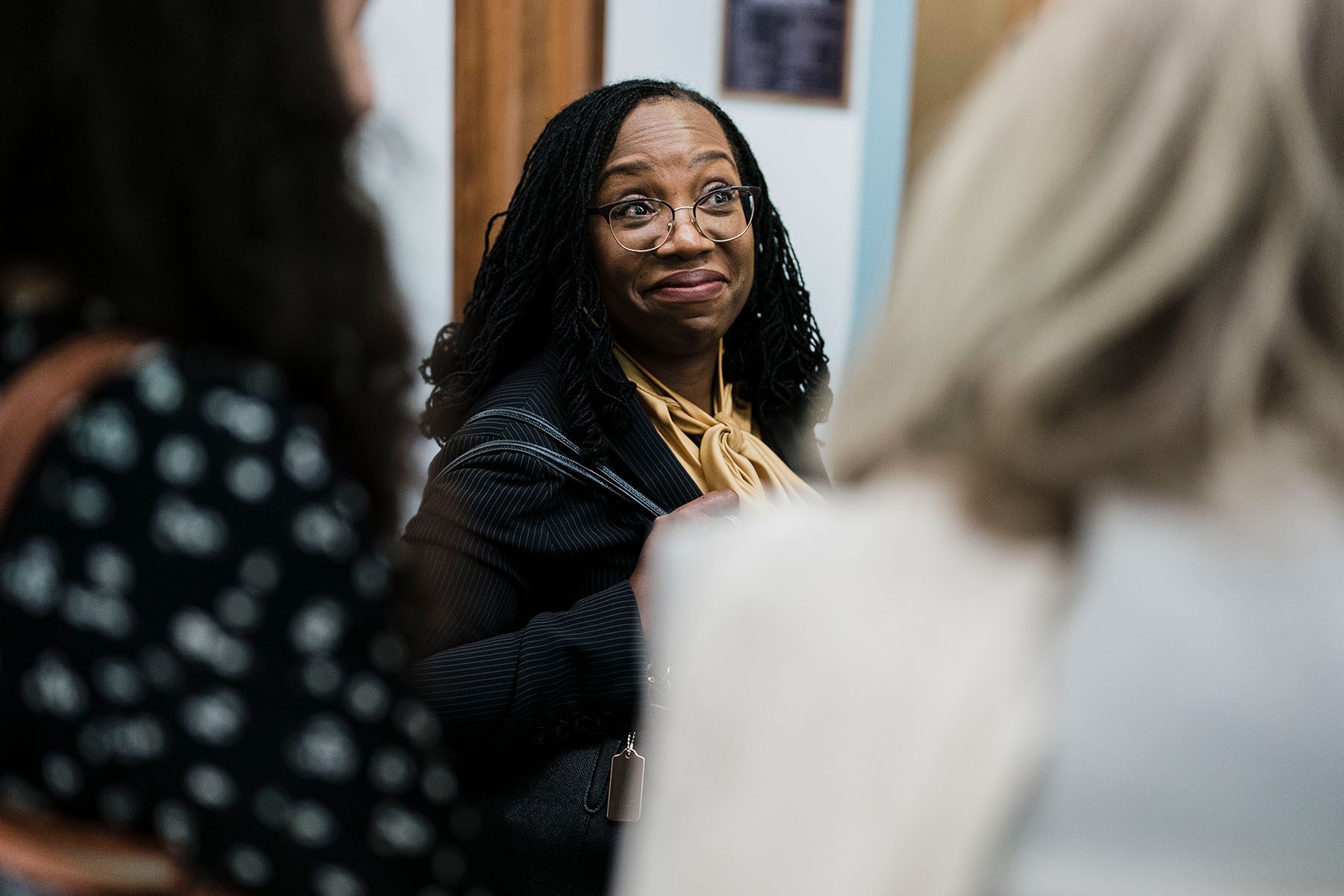
In a statement obtained by CNN and released on February 28, retired appellate court Judge J. Michael Luttig wrote that Republicans “prematurely judged” Biden’s potential nominee when the president first reiterated his promise to nominate a Black woman. Multiple Republican lawmakers criticized Biden at the time for what they asserted was discrimination toward other qualified people. Luttig, who was appointed in 1991 by President George H.W. Bush, added in his statement that Jackson is “eminently qualified” and “highly credentialed” for the high court.
On March 3, another letter signed by 25 conservative leaders circulated online, asking senators to look beyond politics and to focus on the accomplished background that Jackson can add to the court.
“The reason we wrote this letter was because we thought that this is a no brainer. Here’s a person who is totally qualified, everybody ought to be able to rally around and say, ‘She’s terrific and should be confirmed,” Donald Ayer, a former deputy U.S. attorney general under H.W. Bush, and the lead organizer for the letter, told The 19th.
A March 10 letter addressed to Senate leadership obtained by Fox News and circulated by the White House featured an endorsement from 83 Democratic and Republican former state attorneys general who restated the value of Jackson’s legal experience and called for a quick confirmation.
While some conservative news pundits have attempted to launch baseless questions about Jackson’s aptitude, Senate Republicans’ specific critiques of Jackson have been muted and aimed at what they view as progressive rulings.
In many ways, pushing back against Jackson with full force may not be worth it to Senate Minority Leader Mitch McConnell, said former Republican strategist Rina Shah. Harsh comments about Jackson could come off as textbook racism, Shah said, and there is little controversy with Jackson’s record, she added. Jackson can be confirmed with a simple majority in the evenly split Senate. She was confirmed to Washington, D.C.’s circuit court with 53 votes last June, but it is unclear whether all three Republicans will vote for her again.
Some statements over the last few weeks signal what topics Republicans may focus on during Jackson’s hearings. After Jackson’s nomination, McConnell said on the Senate floor that it is curious that some of her strongest supporters also support expanding the Supreme Court beyond nine justices, an effort he opposes and one that Jackson has not publicly expressed an opinion on.
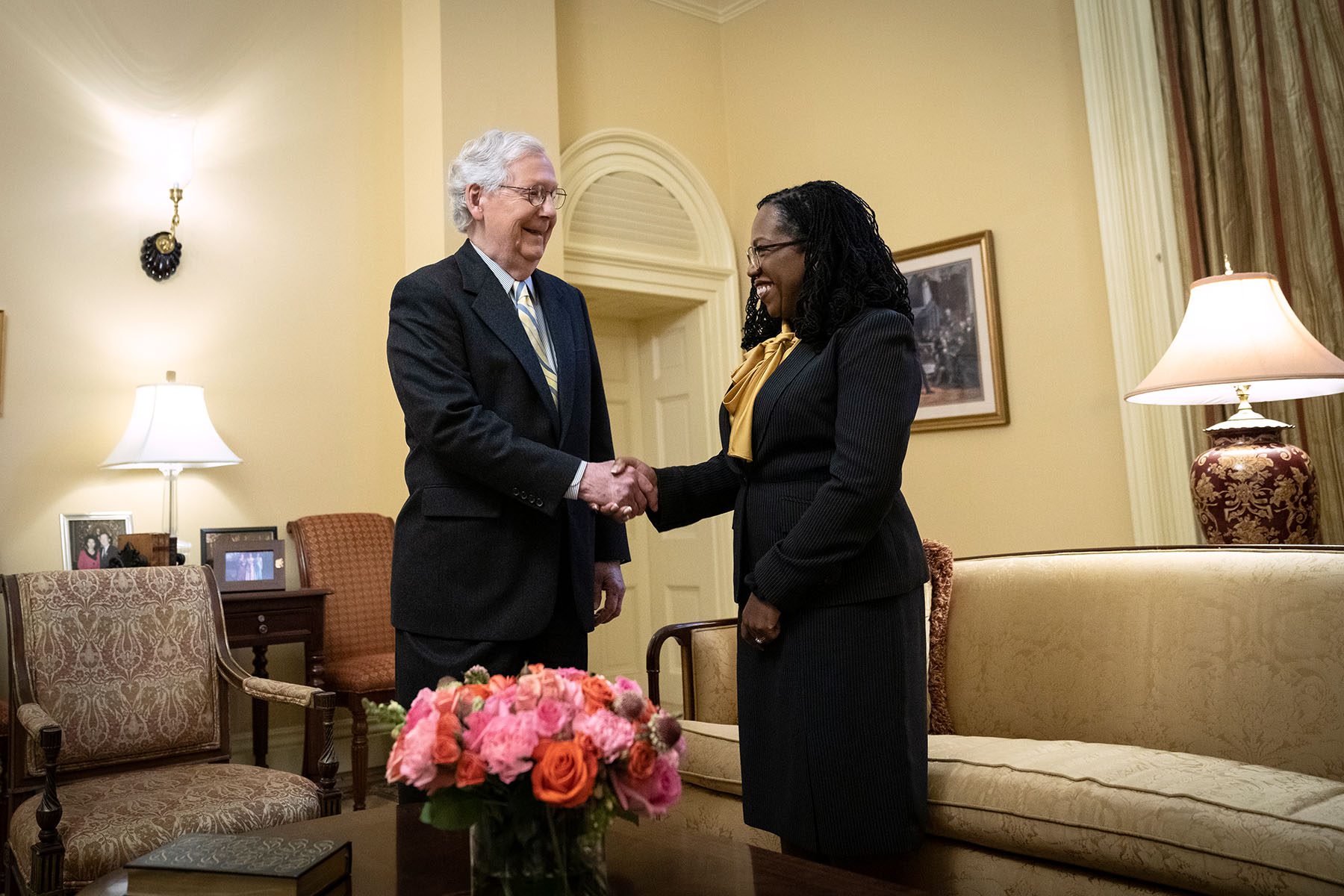
On its website, the Republican National Committee questioned Jackson’s decision to block some executive orders issued by then-President Donald Trump in 2018. The site also raised concerns about her time advocating for Guantánamo Bay detainees’ rights as an assistant federal public defender and in private practice.
Black women who hope to see Jackson confirmed reiterated that ultimately they want her to be received fairly with questions from senators that reflect the legal scholar she is, they said.
“This is an election year, this is a year where Americans are already feeling very concerned about their lives, very concerned about the general level of rancor and nastiness,” said Finney of the Black Women’s Leadership Collective. “I think senators know that America is watching very closely how this process unfolds, how the questioning unfolds and what these members say.”
